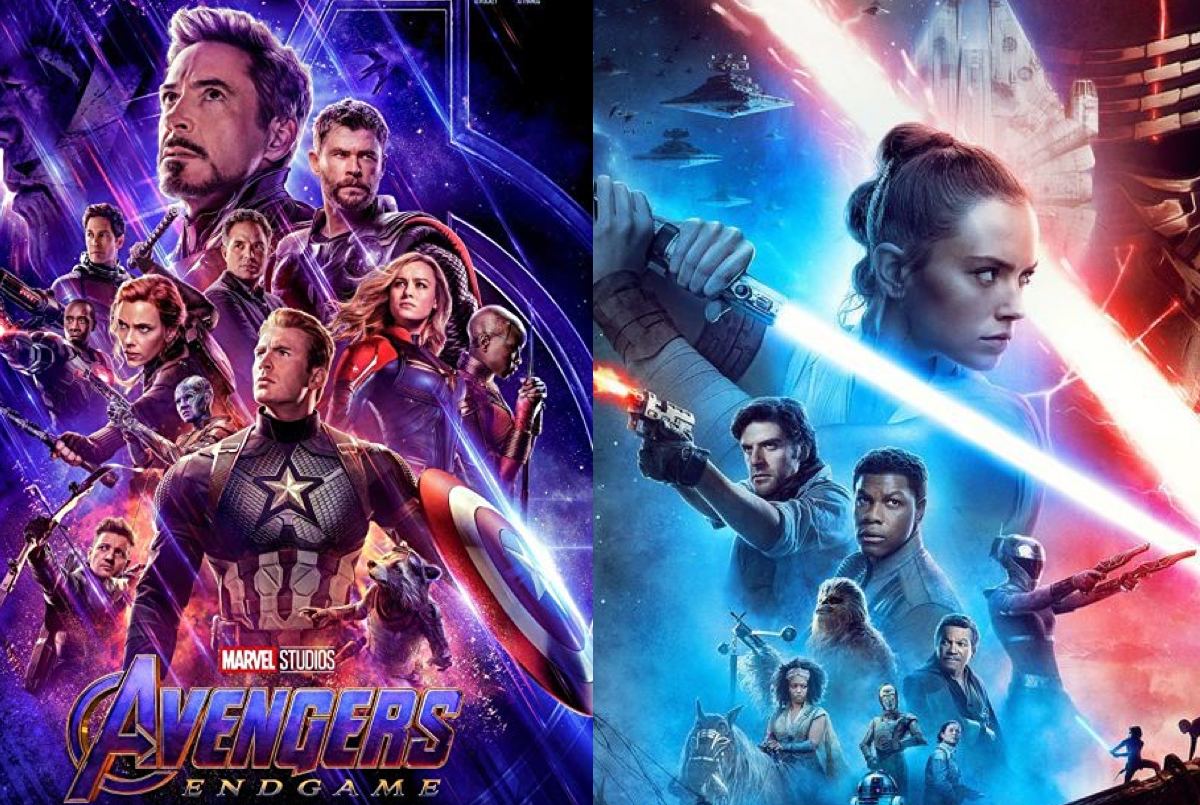Why Did Avengers: Endgame Get a Pass for the Same Problems Rise of Skywalker Had?

While both Marvel’s Avengers: Endgame and Star Wars: The Rise of Skywalker were released in 2019, they are both still present topics of conversation in online and fandom spaces. As both of these films and their respective franchises were hugely successful at the box office and have millions of fans, their dramatic climaxes brought up a lot of intense emotions, as well as some controversies.
There’s no denying there are many similarities between these two movies. They both were meant as conclusions, to varying extents, for stories years in the making and tied up many story arcs in their respective franchises. While both the Marvel Cinematic Universe and Star Wars are still going forward in many ways, Endgame wrapped up the story that began with Iron Man, and Rise of Skywalker was the conclusion of the Skywalker saga.
While the similarities could have ended there, the actual details and plots of both films also had many parallels. Both movies relied heavily on nostalgia and fan affection for the franchise at the sake of a tight plot and consistent character development. They both packed in so much that they breezed through their story points with little feeling of real weight attached to anything, with character interactions and scenes that felt like they existed because they were supposed to rather than because they happened organically.
Sticking the landing on endings for huge franchises is never simple, and inevitably, many storylines will be dropped along the way and many questions will be left unanswered. But, despite both having glaring plot holes or plot contrivances in order to reach the desired outcomes, Endgame generally enjoyed a positive response, while Rise of Skywalker did not. While it’s by no means the only indicator of how critics and audiences feel, Endgame has a Rotten Tomatoes critic score of 94%, while The Rise of Skywalker only has 52%. IMDB places Endgame with an 8.5 out of 10 stars and Skywalker with 6.8 out of 10 stars.
There were many other specific similarities between the films, as well. Both relied on past villains brought back instead of new ones. They both, in many people’s views, struggled to give their female characters their due, with people citing Rey’s narrative arc, as well as Black Widow’s death. Both movies also have issues with character development, with characters such as Kylo Ren being given a poorly executed redemption arc, and on a different but similar note, characters like Steve Rogers getting a narrative arc that went back on the movie’s worth of character development—not to mention Thor’s backwards development.
And, in true Disney fashion, both included throwaway LGBTQ+ representation instead of following through with meaningful representation that fans had been asking for, as both films refused to make their main subtextual queer relationships canon—i.e. Finn and Poe and Steve and Bucky—but opted instead for throwaway moments of queerness. In Endgame, this “representation” was director Joe Russo’s cameo including a mention of losing his boyfriend, while in Rise of Skywalker, there was a background kiss between two women who weren’t named in the movie.
Seeing as these films are both huge Disney franchises with a ton of similarities, the differences in reception are strange, to say the least. Rise of Skywalker also got raked over the coals in articles by a host of critics for its flaws, and while much of this criticism was deserved, it makes little sense that Endgame was allowed to get away with these same issues. While some critics and fans pointed out the flaws, the overall reception for Endgame was a good one that cited a satisfying and emotional ending, despite not being perfect.
Both movies have also dealt with a rather common new thing in filmmaking these days, which is filmmakers and creators explaining important plot points after the fact. Both films, after they were released, had creators giving new information and interpretations that weren’t really in the movies at all.
The most recent example of this that has Twitter in an uproar is a new Star Wars novel that retcons the Kylo Ren/Rey kiss as something other than just romantic. Another example going around recently was the confirmation that the Palpatine in the movie was a clone, which was not in the movie at all. While people are rightfully blasting this type of storytelling that leaves important details outside of canon, it’s interesting how the Endgame creators received little of this. In the aftermath of the movie, screenwriters Christopher Markus and Stephen McFeely have vastly different answers on the time travel rules of the film and the ending involving Steve Rogers, compared to the answers that directors the Russo brothers gave.
Whatever the reasons might be—possibly that Star Wars fandom is known to be more critical of mistakes or that the MCU still has many more movies to come to possibly fix mistakes—the fact that only one of these two was considered a bad movie doesn’t make a lot of sense.
Want more stories like this? Become a subscriber and support the site!
—The Mary Sue has a strict comment policy that forbids, but is not limited to, personal insults toward anyone, hate speech, and trolling.—
Have a tip we should know? tips@themarysue.com